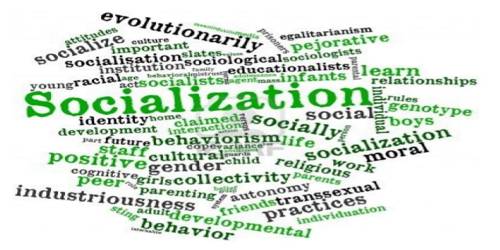Socialization is a process by which culture is transmitted to the younger generation and men learn the rules and practices of social groups to which they belong. The term socialization refers to the process of interaction through which the growing individual learns the habits, attitudes, values, and beliefs of the social group into which he has been born.
Language Socialization
Language socialization is the study of the socialization of language and socialization thru language. It encompasses each a theoretical technique and a technique for studying human improvement in cultural contexts. Relying at the language and situation at any given time, people will socialize differently. Human beings research to socialize differently relying on the particular language and lifestyle wherein they live.
Language socialization enjoins the ethnographic, microanalytic, and longitudinal investigation of newcomers of any age, presupposing a comparative approach to the take a look at of human development. Given the idea that learning happens only within culturally defined contexts, language socialization is based on the capacity of language in use to index meaning, whether or not such that means is inherent in words and grammar themselves or embedded in the context and exercise in their use. A particular example of this is code-switching. This is wherein immigrant youngsters learn how to behave according to the languages used in their lives: separate languages at home and in peer agencies (mainly in instructional settings).
Language socialization stresses the recurrence of linguistic behaviors across time, and thereby allies itself with practice theories of social transmission. This article examines how language socialization has been utilized in studies of home, school, community, and health practices within and across multilingual and multicultural contexts and concludes with a theoretical assessment of the approach.
Information Source:
















